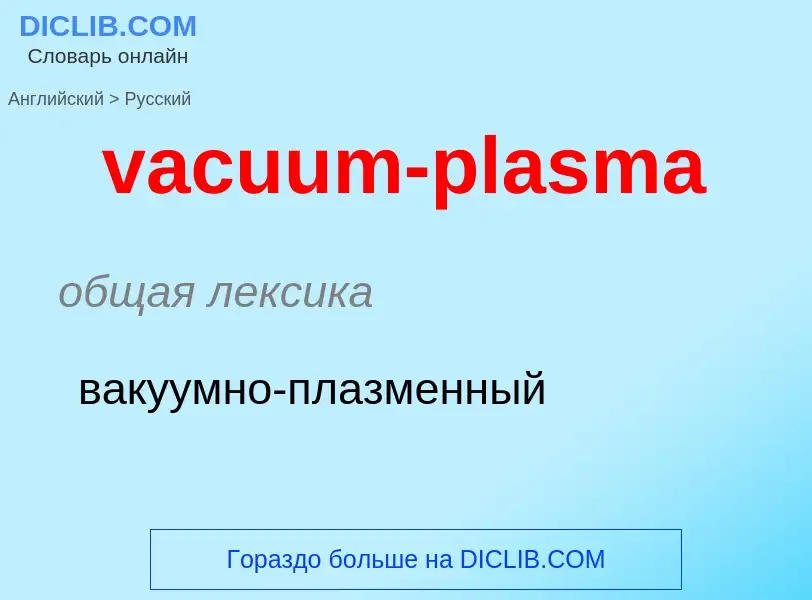Traducción y análisis de palabras por inteligencia artificial ChatGPT
En esta página puede obtener un análisis detallado de una palabra o frase, producido utilizando la mejor tecnología de inteligencia artificial hasta la fecha:
- cómo se usa la palabra
- frecuencia de uso
- se utiliza con más frecuencia en el habla oral o escrita
- opciones de traducción
- ejemplos de uso (varias frases con traducción)
- etimología
vacuum-plasma - traducción al ruso
общая лексика
вакуумно-плазменный
общая лексика
магнитоплазма
магнитоплазменный
общая лексика
квазинейтральность
Definición
Wikipedia
In quantum field theory, a false vacuum is a hypothetical vacuum that is relatively stable, but not in the most stable state possible. This condition is known as metastable. It may last for a very long time in that state, but could eventually decay to the more stable state, an event known as false vacuum decay. The most common suggestion of how such a decay might happen in our universe is called bubble nucleation – if a small region of the universe by chance reached a more stable vacuum, this "bubble" (also called "bounce") would spread.
A false vacuum exists at a local minimum of energy and is therefore not completely stable, in contrast to a true vacuum, which exists at a global minimum and is stable.



![Jacob's Ladder]] Jacob's Ladder]]](https://commons.wikimedia.org/wiki/Special:FilePath/Plasma jacobs ladder.jpg?width=200)

![[[Hall-effect thruster]] [[Hall-effect thruster]]](https://commons.wikimedia.org/wiki/Special:FilePath/HallThruster 2.jpg?width=200)

![Plasma in a [[tokamak]] Plasma in a [[tokamak]]](https://commons.wikimedia.org/wiki/Special:FilePath/MAST plasma image.jpg?width=200)

